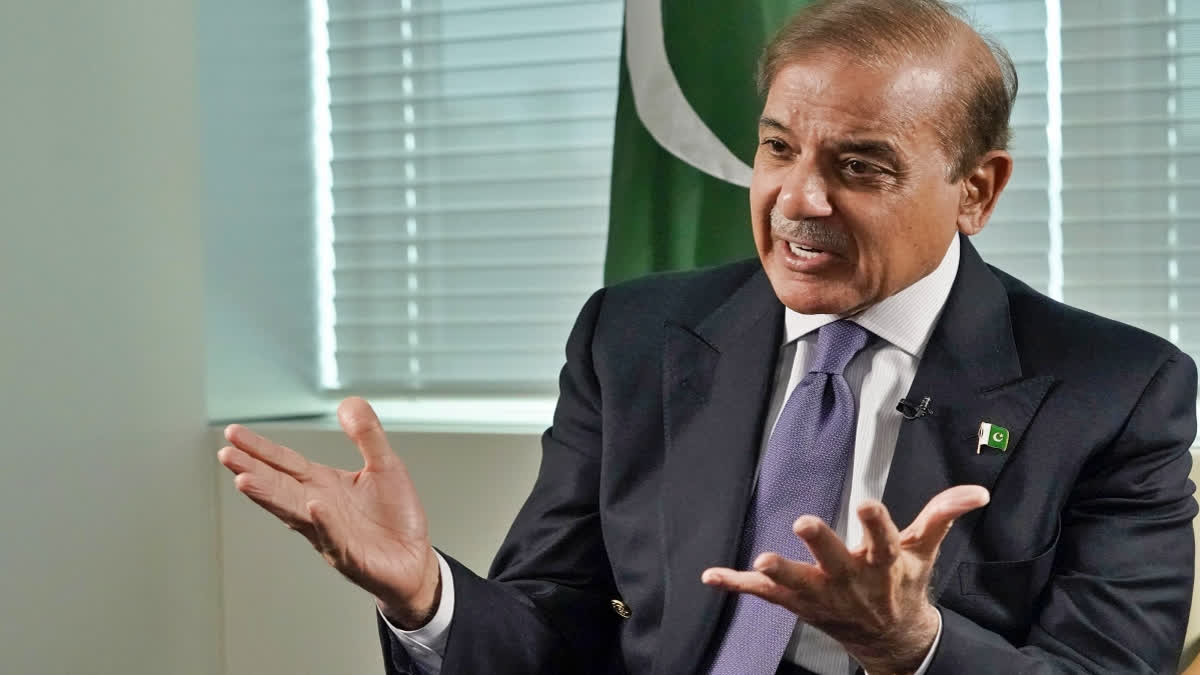The coalition government in Pakistan completes one year after Imran Khan was dethroned in a no-confidence vote on April 10 last year when the Pakistan parliament made history by overthrowing a prime minister through a democratic process and not by a military coup. The national assembly debated for 12 hours and voted against Imran, favouring the opposition parties such as PPP (Pakistan People’s Party), PML (Pakistan Muslim League (Nawaz) and Jamiet Ulema e Islam ( Fazal). Pakistan has a history of military coups that have resulted in the removal of several of the country's premiers.
The change of guard happened at a time when the entire country was grappling with an economic crisis. After coming to power, the coalition government led by Shehbaz Sharif promised to restore economic stability in the country. Negotiations with the IMF to bail the country out of the deep economic crisis that regained pace post the takeover are yet to yield any results. To offer people some respite from inflation, steps taken are yet to show any positive results. In fact, the proposal of getting crude oil at a cheaper price from Russia has not yet materialized.
Imran Khan was the first Pakistan prime minister to visit Moscow in 23 years. His plan to strike a deal with Russia over the purchase of crude oil at a low price could not take a final shape, partly because of his ill-timed visit as he landed in Russia right around the time Vladimir Putin started invading Ukraine. Imran wanted to follow India, and publicly acknowledged Prime Minister Modi's wisdom in choosing a neutral path and continuing to purchase oil from Russia at a lower price. Before Pakistan’s former prime minister could strike a deal with Moscow, he was ousted.
Also read: "We wanted to get cheap Russian crude oil just like India...," says Imran Khan
The new government, however, could not keep up with the process and the proposal still lingers on at the agreement level. Amid this lackadaisical approach, Pakistan has sunk further into an abyss of political and economic crises. Imran’s PTI (Pakistan Tehreek-e-Insaaf) was in power in Khyber Pakhtunkhwa (KP) and Punjab. KP, a tribal belt bordering Afghanistan, has seen a resurgence of militant groups and their merger with Tehreek-e-Taliban, particularly after Imran Khan's government lost a confidence vote in the Pakistan parliament. After the Pakistan military turned its back on Imran, militant activity in the tribal region has increased.
Small militant groups have resurfaced and joined hands with TTP, which draws its inspiration from the Afghan Taliban. It is believed that the re-emergence of militancy was inevitable and that the Pakistan army had foreseen trouble after the Taliban takeover, but it was Imran’s government that halted military operations in the KP belt, fearing that the party may lose the vote bank that it had earned through years of its close proximity with tribal leaders of KP.
The KP assembly was dissolved in January last year, hoping new elections will again give PTI an absolute majority where it had 96 members of total of 145 seats in the house. The PTI has been calling for early general elections as well in KP and Punjab, which the government opposes. However, the Supreme Court gave its verdict and announced that the elections may be conducted on May 14 in KP and Punjab.
The ruling government had on the floor of the national assembly defied the verdict, calling it undemocratic and unconstitutional. On the contrary, the government is planning to launch a major offensive against militant groups in KP, involving both the military and the police. Since the opposition resigned en masse last year, the lower house of Pakistan's parliament has no opposition members, leaving an open ground for the ruling party. PTI wants to push for early elections in KP and Punjab but the government from the floor of the parliament clearly says no to early elections.
In March, the Supreme Court of Pakistan directed the ECP (Election Commission of Pakistan) to hold elections in Punjab and KP within 90 days and to make all necessary arrangements. The ECP, on the other hand, expressed resentment, fearing that the deployment would be inadequate given the security situation in the militancy-infested region.
Also read: Pakistan's NSC decides to launch comprehensive' anti-terror operation
The government believes that eradicating militancy in the region is more important than holding elections. There has been great polarization in the country, creating a huge gulf between the judiciary and the executive and between the opposition and the ruling parties over the elections.
Imran has been soft with militant leaders of KP after some of them sought for amnesty. They were allowed to reintegrate into society after their release from jail or, apparently, after shunning violence. Given Imran’s popularity among tribals, the government and the security apparatus believe militant groups will support PTI in elections, and Imran’s party will again come to power, which is why the government wants to launch the offensive first and hold elections later. Caught between the ruling dispensation and politics of opposition, the people of Pakistan are battling the harsh reality of inflation and unemployment. The year has passed, but the 'Purana Pakistan' chanted by Bilawal Bhutto is yet to emerge.



